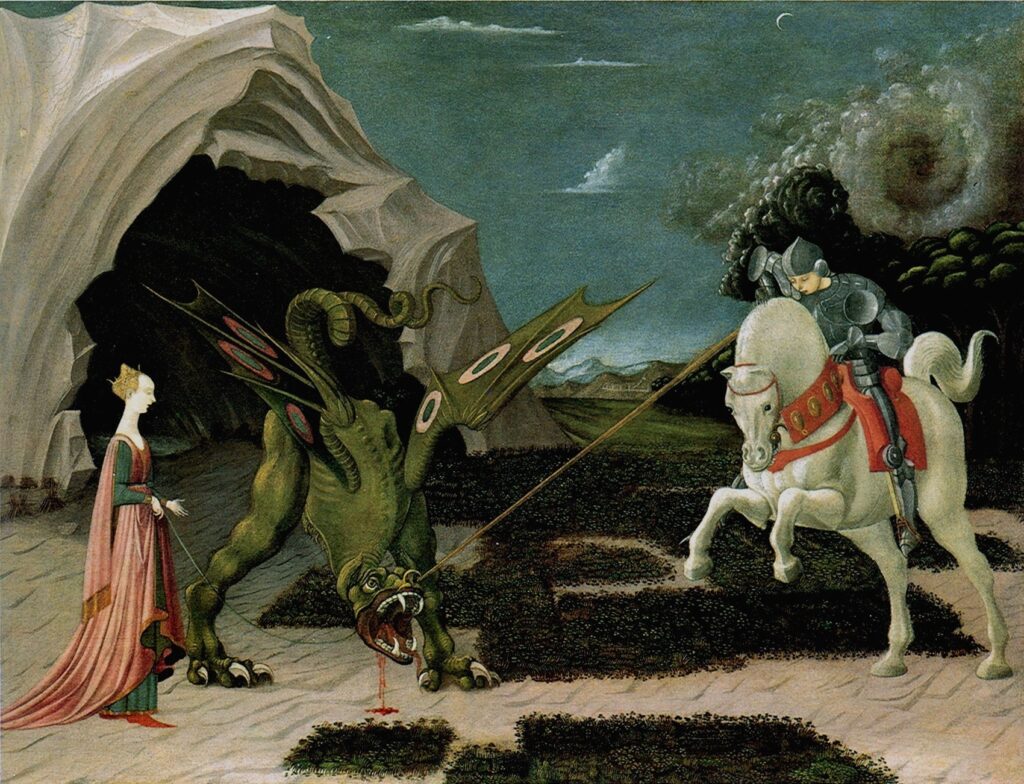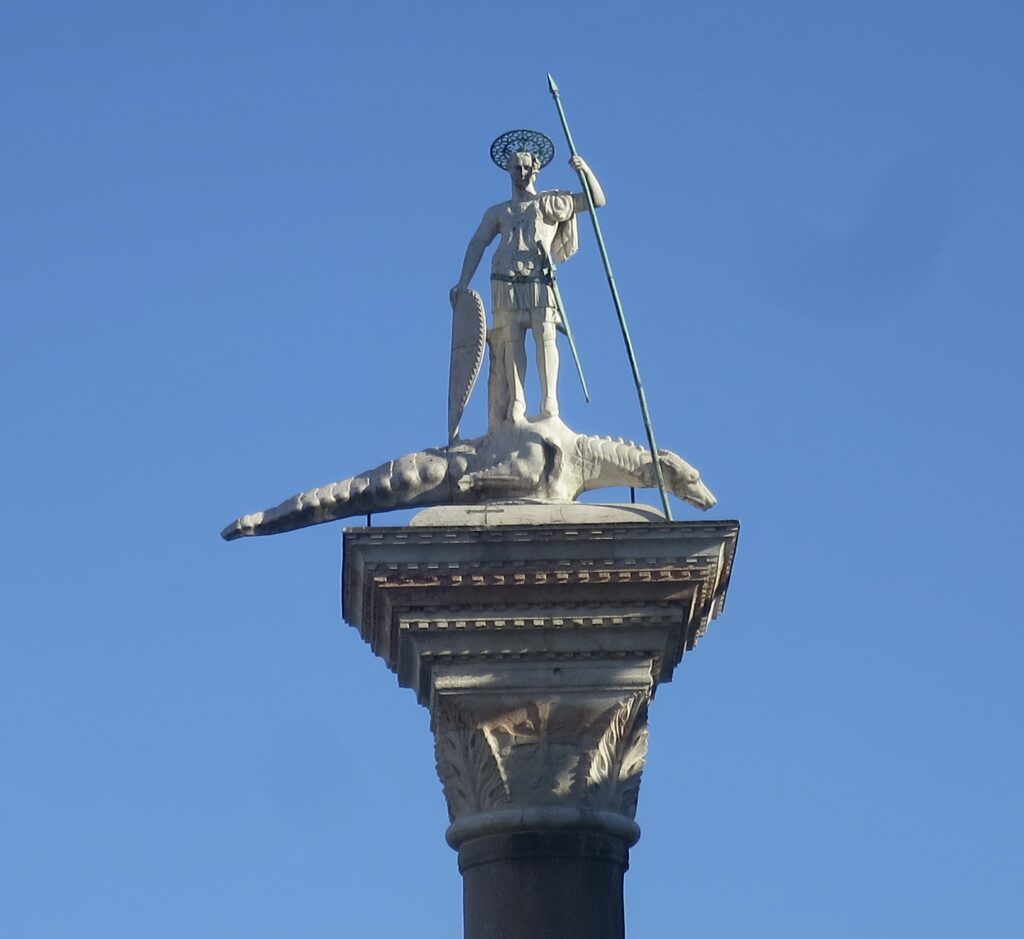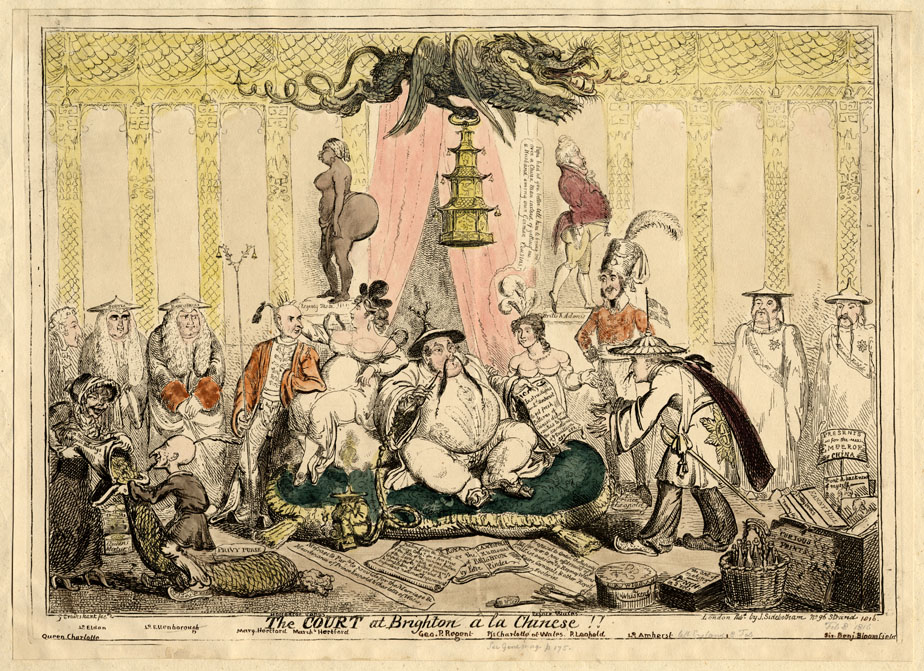The only two dragons that seem to be lurking in the poems set by Schubert are in the works of those supreme figures of the Enlightenment, Goethe and Schiller. In Goethe’s ‘Kennst du das Land’ Mignon recalls the trauma of her journey across the Alps, where mules almost fell into the abyss and where dragons hid in caves. In Schiller’s ‘Die vier Weltalter’ humans had to pass through an epoch in which they had to go into battle against monsters and dragons. In both texts, the fears were unrealised, the dragons did not win.
We know how it works from the general mythology, of course. Oedipus defeats the sphinx. Whether it be at the hand of Siegfried or St. George, pagan or Christian, the dragon is slain. St. Michael the Archangel tramples on the defeated Satan.
This also seems to be the point for Enlightenment characters like Goethe and Schiller. Although both showed sympathy for the terrors that human beings face, either individually or collectively, they were also equally determined to find ways of overcoming such adversity.


☙
Descendant of:
Animals MYTHOLOGY AND THE CLASSICAL WORLDTexts with this theme:
- Mignon (Kennst du das Land?), D 321 (Johann Wolfgang von Goethe)
- Die vier Weltalter, D 391 (Friedrich von Schiller)


